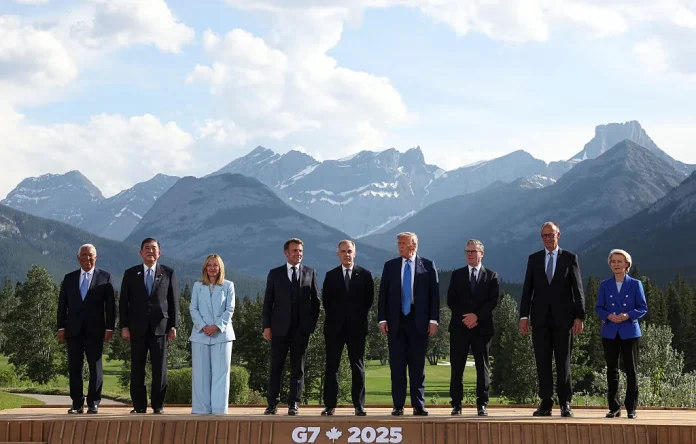CANADA, June 17: At the conclusion of the G7 Leaders’ Summit in Canada, leaders of the world’s seven largest economies voiced strong support for Israel and blamed Iran for escalating instability across the Middle East, as tensions between the two regional powers spiraled into open conflict.
In a joint statement issued late Monday, G7 leaders affirmed Israel’s right to self-defense amid its ongoing military campaign against Iran. The group also emphasized its collective opposition to a nuclear-armed Iran, declaring: “Iran is the principal source of regional instability and terror… The G7 is clear that Iran can never have a nuclear weapon.”
The conflict intensified last Friday after Israel launched what it described as a preemptive airstrike on Iranian targets, citing Tehran’s nuclear ambitions. The strike triggered a series of retaliatory exchanges, with both nations reporting civilian casualties. Iran claims over 220 people, mostly civilians, have died in the strikes, while Israel has reported at least 24 civilian deaths.
The G7’s statement comes amid growing international concern over the wider implications of the Israel–Iran conflict. “We urge that the resolution of the Iranian crisis leads to a broader de-escalation of hostilities in the Middle East, including a ceasefire in Gaza,” the leaders added, calling for diplomatic efforts to stabilize the region.
The summit, held at the scenic Kananaskis Country Golf Course in Alberta, included leaders such as U.S. President Donald Trump, British Prime Minister Keir Starmer, French President Emmanuel Macron, German Chancellor Friedrich Merz, and others. President Trump is reportedly leaving the summit early to return to Washington and manage the crisis.
Though the U.S. has not participated directly in the Israeli attacks, Trump confirmed that Washington had prior knowledge of Israel’s actions and praised them as “excellent.” The White House has warned Tehran against targeting U.S. interests or personnel in the region. Meanwhile, an Israeli airstrike on Monday reportedly targeted Iran’s state broadcasting headquarters.
In parallel diplomatic efforts, U.S. Secretary of State Marco Rubio held discussions with his British, French, and EU counterparts about the crisis. Despite the escalating conflict, the U.S. administration reiterated its commitment to pursuing a nuclear agreement with Iran under strict conditions.
The G7 also emphasized the importance of maintaining energy market stability, signaling potential coordination to prevent disruptions as tensions continue to mount in the oil-rich region.

